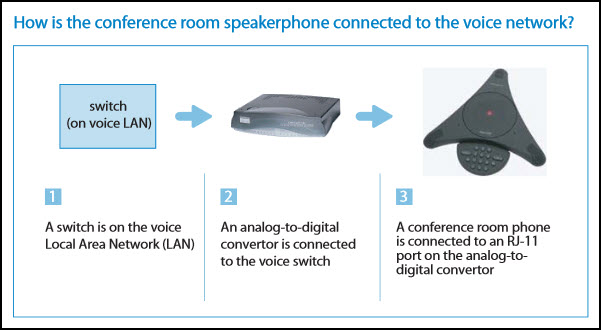The Sky phone system provides a variety of conferencing solutions that enable customers to hold conference calls.
Conferencing Applications
- Ad-Hoc Conferencing - Provides a way to have a conference call on-the-fly with no prior activation. This type of conferencing is not set up ahead of time and conference participants are manually added to each conference call.
- Sky On Demand Conferencing - This "On Demand" conferencing solution, which requires activation prior to use, provides a dedicated conference bridge number that all participants can dial to access a conference call.
Supported Conference Phones
The following IP conference phones are supported by the Sky phone system:
The following Polycom analog conference phones are not officially supported but are compatible with the Sky phone system when used with a supported ATA (Analog Telephone Adapter) device. For a list of supported ATA devices, see the ATA article.
- Polycom SoundStation - A full-duplex conference phone.
- Polycom SoundStation EX - A full-duplex conference phone with integrated keypad, 16-character LCD display, redial, caller ID, and speed dial.
- Polycom SoundStation Premier - A full-duplex conference phone with 2 external microphones.
- Polycom SoundStation Premier with Mics - A full-duplex conference phone with 2 external microphones, integrated keypad, 16-character LCD display, redial, caller ID, speed dial, and full-function infrared remote control.
The following diagram shows how an analog conference phone is connected to the voice network:

Free Conference Solutions Result in Call Completion Issues
Some free conference solutions utilize phone numbers that add charges to the carrier when dialed. While a customer is not charged for these types of calls, the upstream carrier is charged. As a result, the upstream carrier blocks traffic causing our customers to experience call completion issues. Although RingCentral does not block these calls, we cannot stop an upstream carrier from blocking a call when the carrier determines it is being charged.
Previous attempts to have partner carriers investigate call completion and call quality problems have failed. This is because many carriers choose to either not complete these calls or rank these calls with a very low priority on their networks.
As a result, RingCentral is unable to support some third-party free conferencing solutions.



